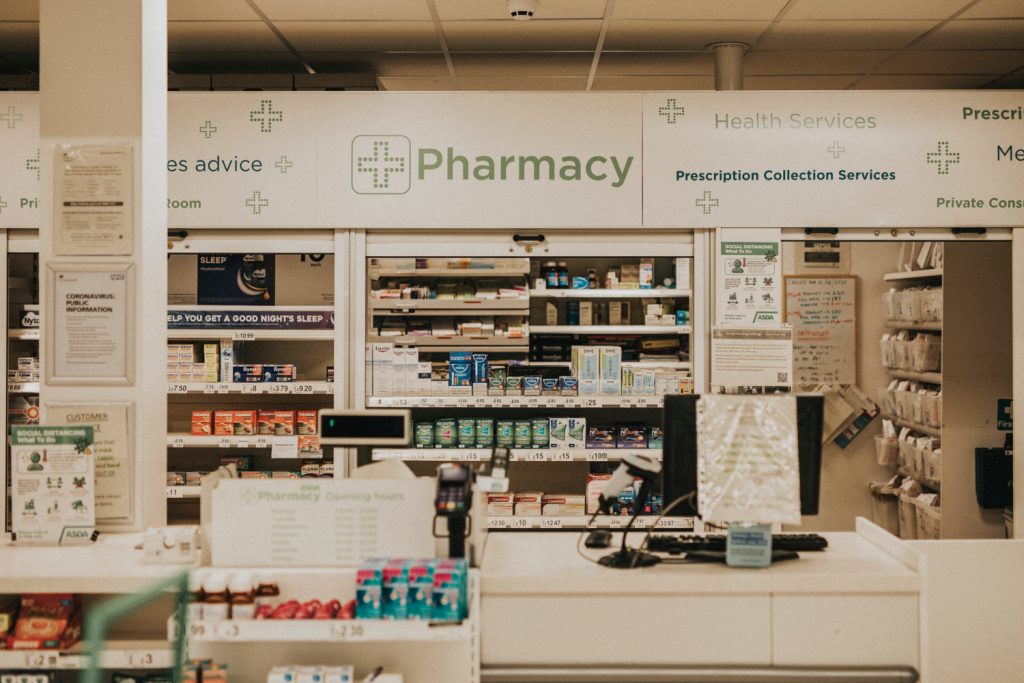18 March 2024
Community pharmacies could become crucial providers of PrEP, a medication that HIV-negative people can take before and after sex to reduce their risk of getting HIV. The benefits of using pharmacies to dispense PrEP include taking advantage of pre-existing pathways or services, as well as accessibility of locations and opening hours. However, barriers such as a lack of staff capacity and training, as well as a lack of privacy within pharmacies would have to be addressed first.

Researchers from the National Institute for Health and Care Research Applied Research Collaboration West (NIHR ARC West) and the NIHR Health Protection Research Unit in Behavioural Science and Evaluation (HPRU) at the University of Bristol, carried out a review of the literature on the barriers and facilitators of community pharmacy PrEP delivery to see if it was feasible.
The research team identified the following barriers to PrEP delivery for pharmacists:
- lack of knowledge, training and skills
- not having the necessary facilities, capacity or time
- concern about the costs of PrEP
- belief that PrEP use could lead to risk behaviours and STIs
However, they also found that PrEP-specific appointment systems and the use of pre-existing services could facilitate the medication being dispensed in pharmacies. The belief that PrEP delivery could be a source of income or profit for the pharmacy, in addition to helping prevent new cases of HIV, were seen as motivators. The research team also identified improving client and pharmacist awareness of PrEP and the provision of PrEP specific training and education as potential facilitators.
To perform this review, researchers searched 10 databases, identified 649 potentially relevant records, and narrowed this down to 56 eligible ones. Most of the eligible papers they reviewed consisted of original work conducted during or after the year 2020 in the USA. This reflected a change in legislation that came into place around this time allowing pharmacy PrEP delivery in some states.
The research team mapped the barriers and facilitators of community pharmacy PrEP delivery identified in the literature to the COM-B behaviour change model, which states that behaviour change requires capability, opportunity, and motivation.
Dr China Harrison, lead author of the scoping review said:
“The scoping review provides the first step toward developing an acceptable, effective evidence-based intervention for UK community pharmacy PrEP delivery.
“By addressing the barriers and promoting the facilitators identified by the scoping review, community pharmacies could become crucial players in expanding PrEP accessibility and uptake, contributing significantly to HIV prevention efforts.”
Professor Jeremy Horwood study principal investigator, from University of Bristol, NIHR ARC West and NIHR HPRU, said:
“Increasing PrEP access is an important means of meeting the UK Government’s goal of ending new HIV transmissions by 2030.
“Currently in England PrEP is only available for free on the NHS via sexual health clinics, but stigma surrounding sexual health services is a significant barrier to accessing PrEP, widening health inequities, as these PrEP services are used less by women, global majority communities and trans-persons.
“Our review demonstrates the feasibility of pharmacy PrEP delivery. By identifying the barriers, facilitators and training needs of pharmacists and the acceptability to service users, we hope this can inform the implementation of pharmacy PrEP delivery.”
Paper
Facilitators and barriers to community pharmacy PrEP delivery: a scoping review
Further information
About the NIHR
The National Institute for Health Research (NIHR) is the nation’s largest funder of health and care research. The NIHR:
- funds, supports and delivers high quality research that benefits the NHS, public health and social care
- engages and involves patients, carers and the public in order to improve the reach, quality and impact of research
- attracts, trains and supports the best researchers to tackle the complex health and care challenges of the future
- invests in world-class infrastructure and a skilled delivery workforce to translate discoveries into improved treatments and services
- partners with other public funders, charities and industry to maximise the value of research to patients and the economy.
The NIHR was established in 2006 to improve the health and wealth of the nation through research, and is funded by the Department of Health and Social Care. In addition to its national role, the NIHR supports applied health research for the direct and primary benefit of people in low- and middle-income countries, using UK aid from the UK government.